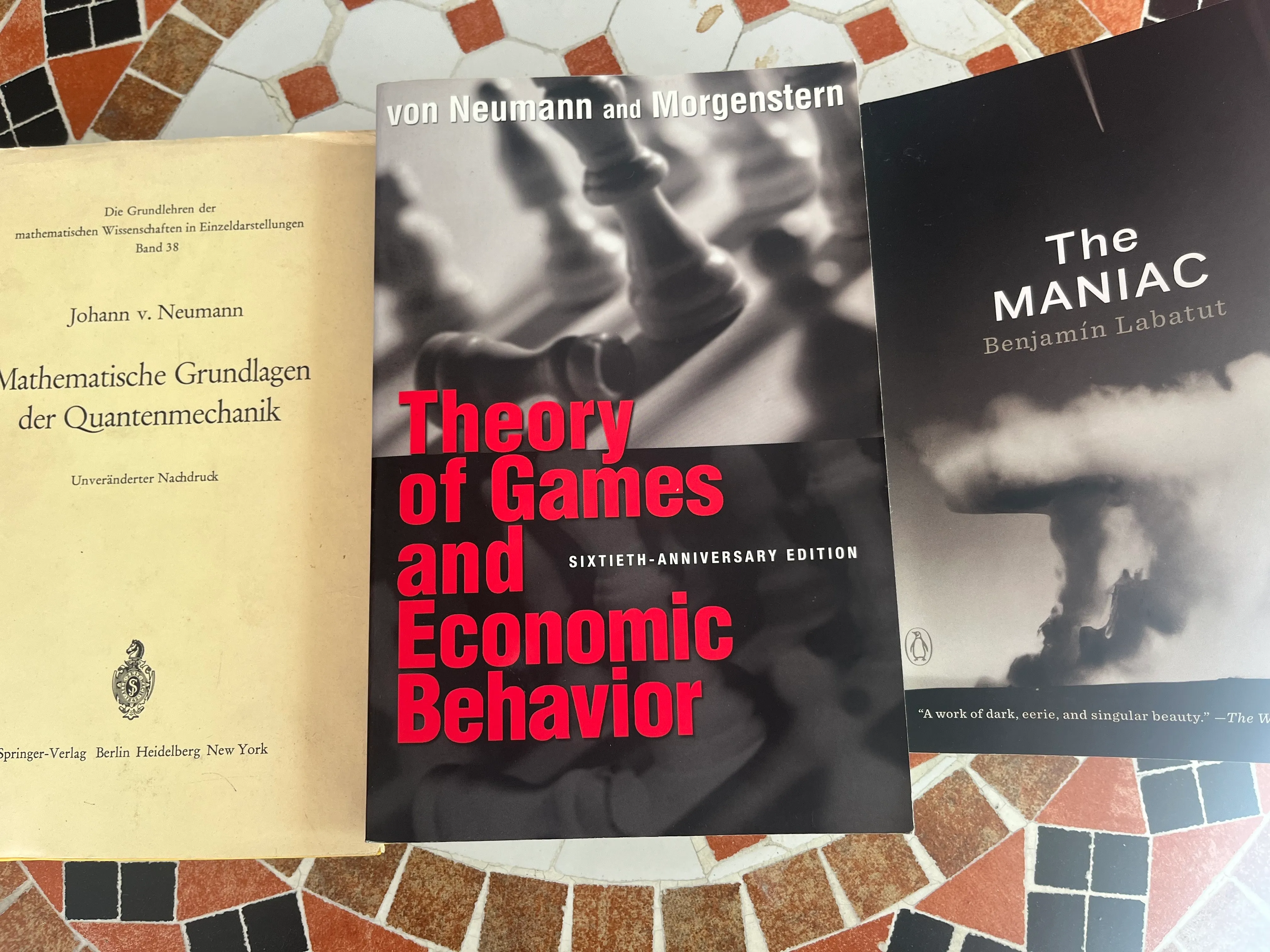During my very eclectic Ph.D., I studied an optimization problem related to bi-level optimization, adversarial search, and, more generally, game theory. At times, I became kind of obsessed with it. I forced myself to read the least didactic textbook on the topic, a book that, I must confess, I could never finish reading. Not even close. Despite studying complete chapters and being fascinated by the topic and the author, I couldn’t make much progress.
The book, that someone called “one of the most influential and least-read books of the twentieth century”, is Theory of Games and Economic Behavior (Princeton University Press, 1944) by John von Neumann and Oskar Morgenstern. A holy grail aiming at nothing less than the mathematization of human behavior. Did they succeed? Well, someone has to read the book to answer that question 😜.
I think it’s a book worth looking at. It’s kind of a totem of a different era and a window into the mind of a genius. It is a book worth perusing or reading, if you have the stamina. I’ve had it on my bookshelf for years and recently started looking through it again, not because of a renewed interest in the topic, but because I read a fictionalized account of von Neumann’s life, The MANIAC, by Benjamin Labatut (Penguin Random House, 2023). It’s the second book I’ve read by this author in a short time (the other is When We Cease to Understand the World). Both are excellent reads.
These books have an amazing tempo and a sense of speed that pushes you back in your armchair. One interesting reflection in them is the idea of playing with forces beyond our control that have the potential to annihilate us. Often, considerations about the consequences are eclipsed by the sheer joy of scientific discovery. The allure becomes irresistible. We built the bomb simply because we could.
